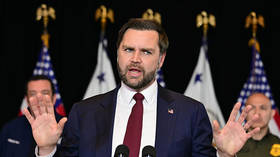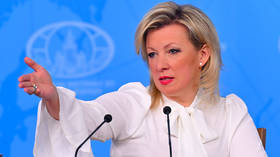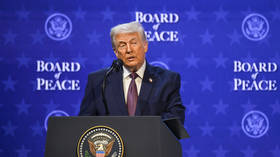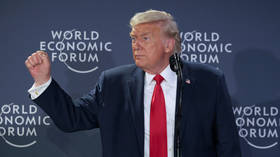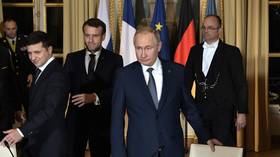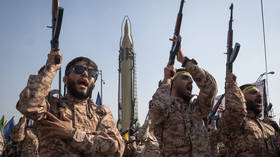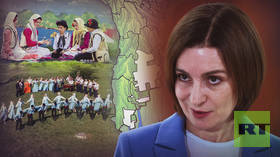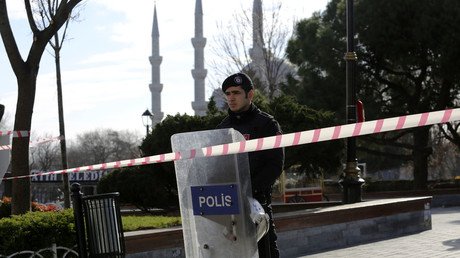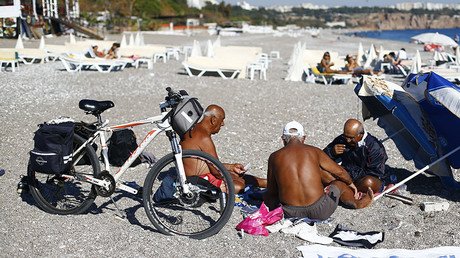Turkey main transit route of militants, lets Russian ISIS suspects move to 3rd countries –ambassador
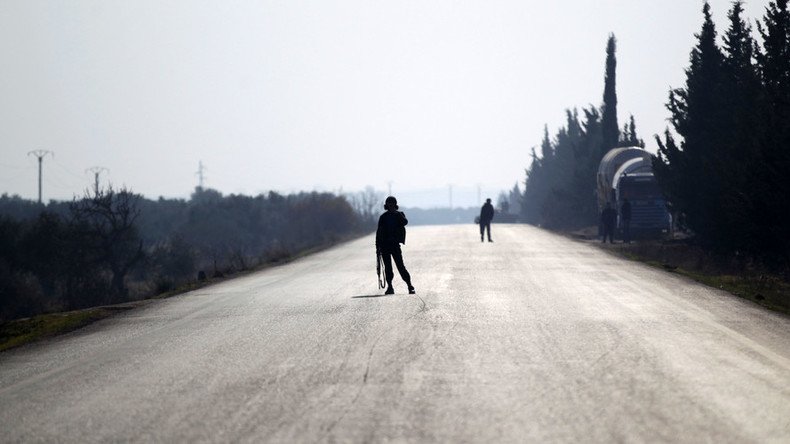
Russian citizens detained in Turkey on suspicion of terror-linked activities are usually deported to third countries, thus escaping prosecution, says Russia’s ambassador to Ankara. None of them have ever been charged in Turkey.
Turkey remains one of the main channels of foreign fighters’ transit to territory under Islamic State (IS, former ISIS/ISIL) control, Andrey Karlov, Russian ambassador to Turkey, told RIA Novosti.
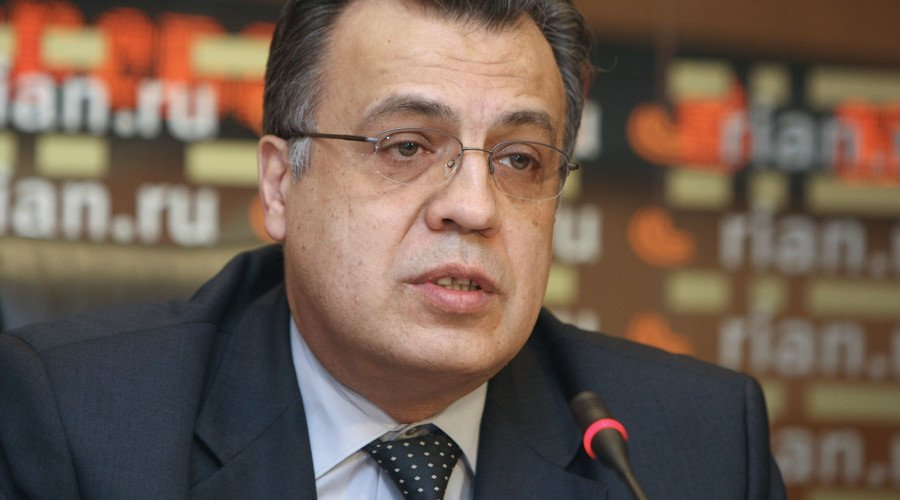
Yet cooperation between Moscow and Ankara on terrorism issues leaves much to be desired, the diplomat acknowledged.
Turkey does not report to the Russian embassy when people with Russian passports are captured while trying to join IS. The Russian embassy often learns about such facts from media reports.
Yet Karlov sees no reason not to believe the stats voiced by Turkish Minister of the Interior Efkan Ala, who reported that in 2015 there were 2,783 foreign citizens from 89 countries detained in Turkey, of them about 100 were Russian citizens.
URGENT: Islamist militants in Aleppo, #Syria, got reinforcements from #Turkey - Russian Foreign Ministry https://t.co/dHSyM4ZTmv
— RT (@RT_com) January 21, 2016
The real problem is that “very often” Turkish authorities deport Russian citizens suspected of terrorist activities to third countries, with which Moscow has strained relations (Ukraine) or has no diplomatic contacts at all (Georgia).
“If a person suspected of having links to Islamic State is deported to such countries, our chances to arrest them come to naught,” Karlov said.
The Turkish side maintains that deportation to third countries is exercised “on the suspects’ request.”
“I believe that if an IS suspect does not want to return to Russia, that serves additional confirmation he does have links to IS or wanted to join it,” Karlov said, stressing he knows of no instance when a Russian citizen was arrested or served a prison term in Turkey on terrorism charges.
He stressed that the current downturn in Russian-Turkish relations, caused by the attack on Russian Su-24 bomber over the Syrian territory, is not Moscow’s fault, as Ankara refuses to make any diplomatic steps internationally understood proper in similar cases.
“We never said Turkey is an enemy country to us,” Karlov said, citing President Vladimir Putin’s statement that the Turkish people are a “friendly nation” to Russians.
“The problem exists only with a certain part of the Turkish leadership, which is non-negotiable,” the diplomat said.
Furious Erdogan tells US to choose between Turkey and Syrian Kurds https://t.co/EjebKjA8uXpic.twitter.com/UeDlKssLjV
— RT (@RT_com) February 8, 2016
“Destruction of military aircraft is an unprecedented defiance to Russia,” Karlov said, pointing out that Russian leadership’s reaction was “utmost clear.”
“We expect official apology from the Turkish side, demand punishment of offenders and compensation for the damage,” Karlov said, stressing that without the abovementioned conditions being met, he sees “no possibility for normalization of bilateral relations.”
Russia demands arrest of Su-24 pilot’s murderer who gave interview for Turkish media https://t.co/pbdPNXYglgpic.twitter.com/Z1JgAVLdXa
— RT (@RT_com) December 30, 2015
If Ankara does not change its mind, “all contacts will remain frozen,” Karlov said. Ankara has been demanding a meeting at the highest level, but without Turkey changing its current position such contacts are going to be impossible, he said. Ankara and Moscow need no mediators to solve the crisis.
The incident with downed Su-24 is a “challenge” for the Russian state, and President Putin’s statement about “stab in the back” was unambiguous, Karlov noted.
“Possibly, such reaction could be deemed emotional, but I cannot designate defense of State interests as an emotion,” Karlov said.
Russia-Turkey trade contracted 25% in 2015 https://t.co/Sdq5QQFw2hpic.twitter.com/MVC848UG7A
— RT (@RT_com) February 9, 2016
The Russian diplomat said that according to the Turkish Social, Economic and Political Research Foundation the crisis has already cost Turkish businesses about $11 billion. Yet Karlov cited “invisible export” issues, such as sharp decline of tourist flow from Russia and Turkish construction companies losing contracts in Russia, which could finally amount to $15 billion.



